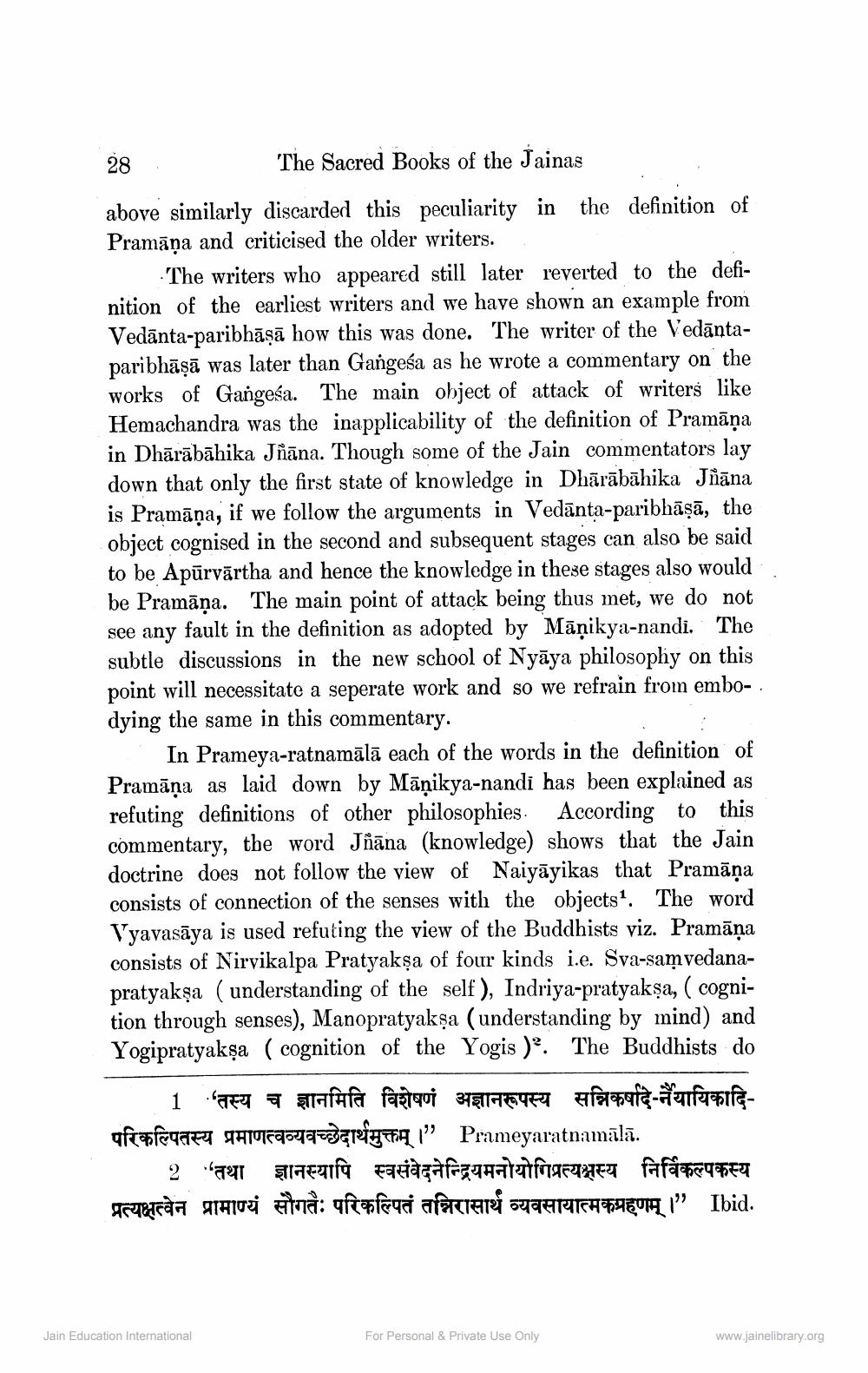________________
28
The Sacred Books of the Jainas above similarly discarded this peculiarity in the definition of Pramāṇa and criticised the older writers.
The writers who appeared still later reverted to the definition of the earliest writers and we have shown an example from Vedānta-paribhāṣā how this was done. The writer of the Vedāntaparibhāṣā was later than Gangesa as he wrote a commentary on the works of Gangesa. The main object of attack of writers like Hemachandra was the inapplicability of the definition of Pramāņa in Dhārābāhika Jñāna. Though some of the Jain commentators lay down that only the first state of knowledge in Dhārābāhika Jñāna is Pramāņa, if we follow the arguments in Vedānta-paribhāṣā, the object cognised in the second and subsequent stages can also be said to be Apārvārtha and hence the knowledge in these stages also would be Pramāņa. The main point of attack being thus met, we do not see any fault in the definition as adopted by Māņikya-nandi. The subtle discussions in the new school of Nyāya philosophy on this point will necessitate a seperate work and so we refrain from embo- . dying the same in this commentary.
In Prameya-ratnamālā each of the words in the definition of Pramāņa as laid down by Māņikya-nandi has been explained as refuting definitions of other philosophies. According to this commentary, the word Jñāna (knowledge) shows that the Jain doctrine does not follow the view of Naiyāyikas that Pramāņa consists of connection of the senses with the objects". The word Vyavasāya is used refuting the view of the Buddhists viz. Pramāņa consists of Nirvikalpa Pratyakṣa of four kinds i.e. Sva-samvedanapratyakşa ( understanding of the self ), Indriya-pratyakşa, ( cognition through senses), Manopratyakşa (understanding by mind) and Yogipratyakşa ( cognition of the Yogis ). The Buddhists do
___ 1 'तस्य च ज्ञानमिति विशेषणं अज्ञानरूपस्य सन्निकर्षादे-नैयायिकादिgf feqafi JA1695272greitti" Prameyaratnamālā.
2 "तथा ज्ञानस्यापि स्वसंवेदनेन्द्रियमनोयोगिप्रत्यक्षस्य निर्विकल्पकस्य Fara gta atra: ufafaqai afariati YARICH HEUTE” Ibid.
Jain Education International
For Personal & Private Use Only
www.jainelibrary.org




